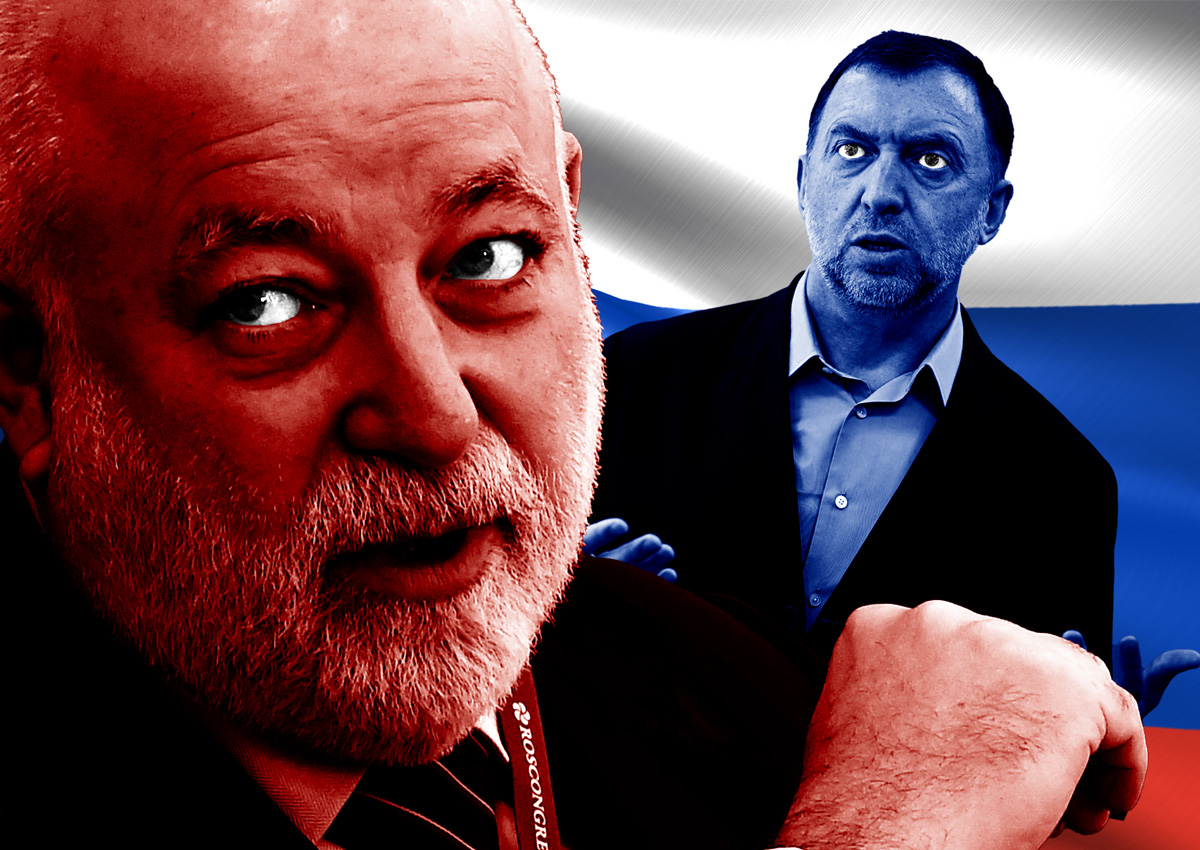The real estate industry was grumbling about the extensive, time-consuming paperwork associated with filling out the Beneficial Ownership Information form, which had a looming deadline of March 21 and, at one point, a $500-per-day penalty. Real estate deals are commonly done through the use of entities –– corporations, limited liability companies and others –– that had to file the form.
Donald Trump appears to have heard the complaints.
His administration rolled back the law behind the filing mandate, the Corporate Transparency Act, which aimed to trace and stop money laundering and other illicit fund flow into U.S. assets with transparency. The measure became law in 2021 after Congress overrode Trump’s veto of the bill that included the act and required companies to disclose the names and identifying information of their beneficial owners.
This stood to hit the real estate industry in particular, since its well-heeled, often foreign buyers seek to stash their lucre –– ill-gotten or legitimate –– in such safe havens as New York penthouses and South Florida condos, as well as mansions and commercial buildings elsewhere in the country. Lax disclosure requirements for purchasing entities, as well as the U.S.’s relative economic stability, have made real estate a nice place to park cash discreetly but also left the sector, especially on the luxury end, prone to fraud schemes.
But in reassessing the usefulness of the original law and the burdens on companies, Treasury Secretary Scott Bessent determined that beneficial owner reporting by domestic entities “would not be highly useful in national security, intelligence, and law enforcement agency efforts to detect, prevent, or prosecute money laundering, the financing of terrorism, proliferation finance, serious tax fraud, or other crimes,” according to the interim rule.
Now, under the Treasury’s new rule, domestic companies don’t have to submit the reports, though foreign entities are still on the hook.
The rule’s rollback is in line with the administration’s vow to invigorate U.S. companies by freeing them from paperwork, costs and other regulatory burdens, but it also dismantles regulators’ ability to track properties purchased with ill-gotten gains, including by off-shore investors.
Despite the law’s continued focus on foreign buyers under the rule change, there are loopholes, experts said.
“It’s made a lot of bad people happy,” anti-money laundering expert Ross Delston said. “A lot of very bad people in the U.S. and throughout the world would be very happy to learn that it’s back to business as usual in a country which issues the world’s reserve currency and, relatively speaking, has always been a stable home for both licit and illicit funds.”
Loopholes within loopholes
Here are the kinds of deals the disclosure form sought to stop:
At Sunny Isles Beach’s Porsche Design condo tower, so high-end it has a car elevator, a unit was allegedly used to pay a money launderer for his services. Those services? To wash some of the $1.2 billion prosecutors say was embezzled from Venezuela’s state-owned oil company, Petróleos de Venezuela, including by some of the country’s high-ranking government officials.
Or: A four-story Miami office building that recently popped up in legal filings alleging it was purchased with proceeds from the $800 million Odebrecht bribery scheme that spanned 12 countries.
Another one: Following Russia’s full-scale invasion of Ukraine in 2022, the Corporate Transparency Act was expected to aid authorities in tracing real estate owned by sanctioned oligarchs, many of whom are seen as Kremlin enablers. In 2023, federal authorities moved to freeze the Hamptons home of Russian oligarch Viktor Vekselberg, as well as his condos in New York and Miami Beach’s Fisher Island. The metals and energy tycoon and Vladimir Putin ally was sanctioned in 2018 and then again in 2022.
In its new form, the most glaring loophole to the rule is that foreign entities can bypass reporting by either purchasing an existing U.S. entity or creating a U.S.-based affiliate.
“Even if you accept the premise that we need to be more concerned about non-U.S. persons, if a non-U.S. person sets up a U.S. entity, which of course can be done quickly and easily, then they are exempt,” attorney William McCullough, whose practice includes regulatory matters for domestic and international financial institutions, said.
Many states’ regulations also allow for opacity.
In New York, a law requiring the disclosure of beneficial owners of state-registered LLCs sets the first deadline to early next year, though the legislation doesn’t cover other types of entities. Delaware, known for giving businesses privacy, doesn’t mandate disclosure of an LLC’s manager or even a registration address. Florida requires the listing of a registered agent and a manager or another authorized person, but neither of those have to be the true beneficial owners. In-laws, business associates or other proxies are sometimes used when registering Florida LLCs.
“Under the new rule, just because it’s a Florida entity, it doesn’t have to report under the Corporate Transparency Act, so it is entirely exempt even if all of its beneficial owners and control persons are non-U.S. persons,” said McCullough, of Shutts & Bowen.
Another loophole: The Corporate Transparency Act technically was originally created to stem illicit fund flow across U.S. investment vehicles, real estate and other. Under the recent change, the act applies only to those foreign companies that register to do business in the U.S. That could exclude ownership of real estate, experts said.
“A foreign company could buy a building in the U.S. without qualifying to transact business,” McCullough added.
While the Corporate Transparency Act was “weak,” now it is “gutted,” Delston said. But even a weak law that relied on self-reporting and little due diligence at the moment of filing might have caught operators of shell companies sometime down the line, thanks to the data collected, the experts said.
Now, even that data won’t exist.
FinCEN, the Financial Crimes Enforcement Network, estimates that roughly 11,667 entities would file beneficial owner reports annually, a drop from the roughly 32 million that were expected to file under the original law.
Alternative stopgaps
Not implementing the Corporate Transparency Act doesn’t mean business ownership is a free-for-all for real estate buyers.
The government has other laws that can fill in the gaps left under the de-fanged rule, though these options also have shortcomings, legal experts said.
The Bank Secrecy Act’s Known Your Customer mandates financial institutions do their customer due diligence to aid in the fight against money laundering. Although banks are required to do ongoing monitoring, most due diligence is done when opening an account, according to Alexander Parthemer, an estate planning and corporate law attorney.
Beneficial ownership of accounts could be transferred “behind the scenes” so banks “have no idea” about these changes, he added.
By the end of the year, FinCEN is expected to implement the Residential Real Estate Rule, which requires title insurers, escrow agents and other real estate professionals to report on all-cash residential purchases in the U.S.
“We are back to the issue of, ‘Do we know who the beneficial owners are if a lot of these entities have been layered in such a way that no one actually knows?’” Parthemer said. “It’s easy to layer a couple of different LLCs and hide who controls that.”
In its guidelines on foreign investment, the Trump administration said the Committee on Foreign Investment in the United States, a long-existing inter-agency committee that reviews the implications of foreign investment on national security, will be used to restrict Chinese investment in technology, health care, agriculture and other sectors.
This could extend to oversight over real estate deals, said Harsh Arora, a domestic and international corporate transactions attorney.
The attorney general and secretary of homeland security have already approved the change to the Corporate Transparency Act; a public comment period goes until May 27.
It’s still possible that the final rule will be tweaked based on this feedback.
Stopping the illicit flow of funds now “has to be a collective effort of laws and agencies,” Arora, of Nelson Mullins, said.
The transparency act, though imperfect, was another tool “envisioned to change things,” Arora said. “But the final rule, the way it is now, doesn’t change anything.”
For the real estate industry, the act’s rollback means deal counterparties –– developers, appraisers, attorneys, brokers and others –– have a greater burden to conduct due diligence to determine whether investment entities are tied to illicit funds or buyers accused of wrongdoing, Delston said.
But that’s not a high bar.
“There is no legal requirement for counterparties to real estate deals to conduct due diligence other than to avoid being part of a criminal offense,” he said.
“The result will be Champagne bottles — and by that I mean the good stuff from France — being opened everywhere that criminals and terrorist financiers reside.”
Read more



